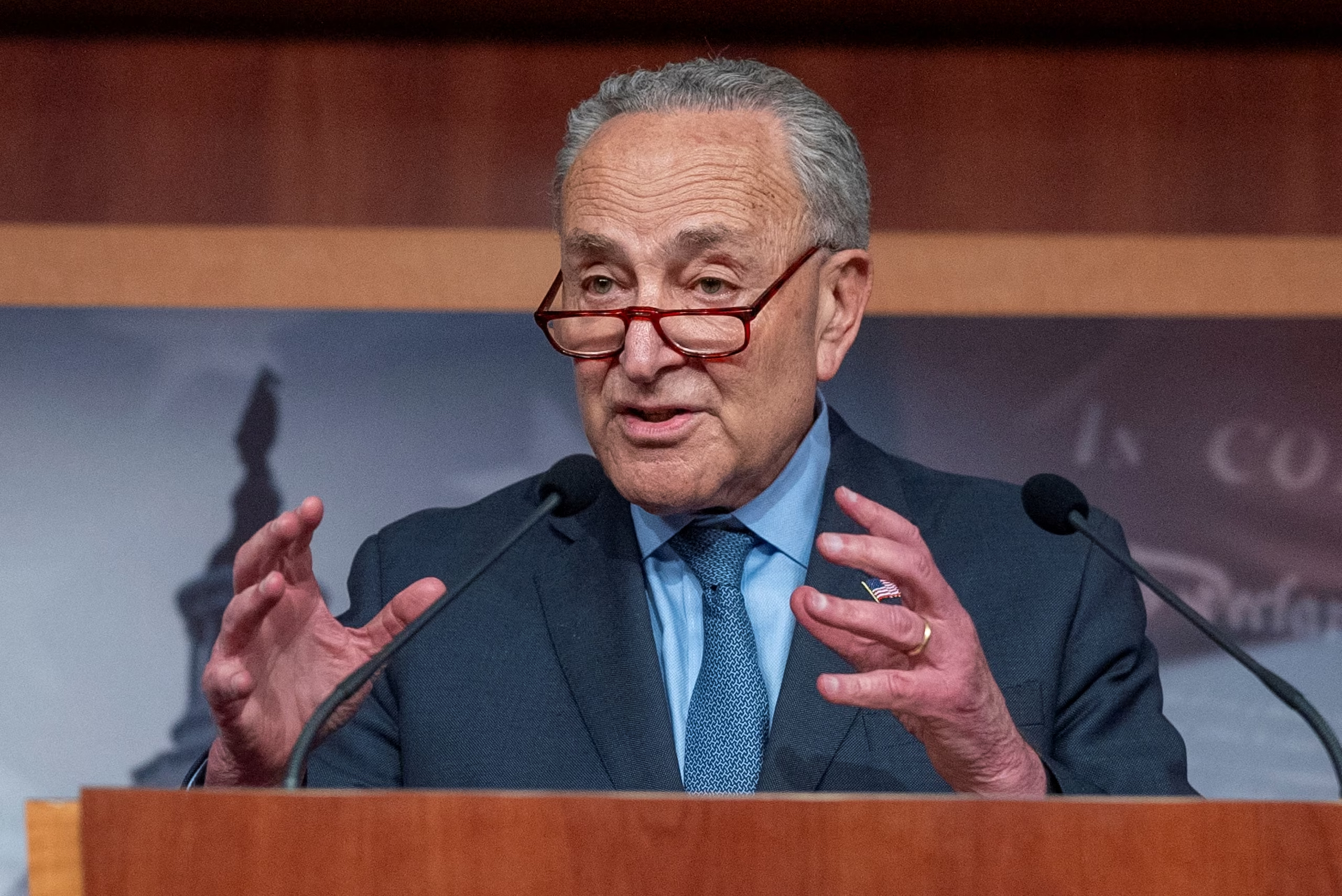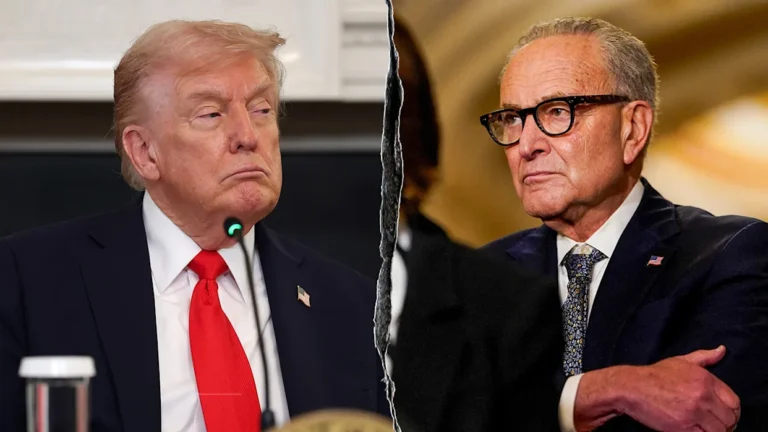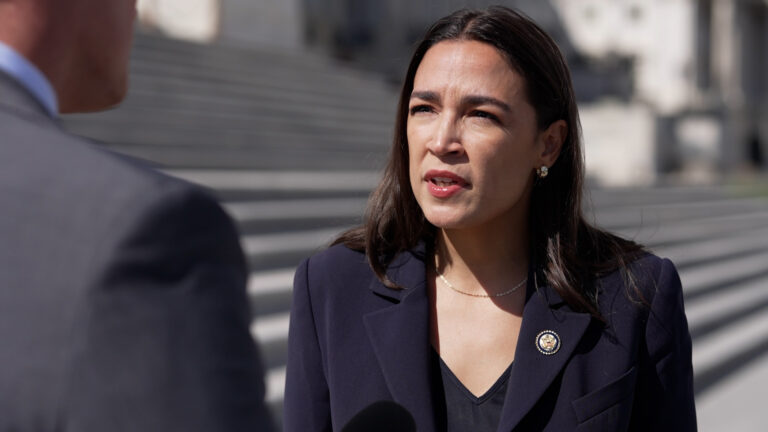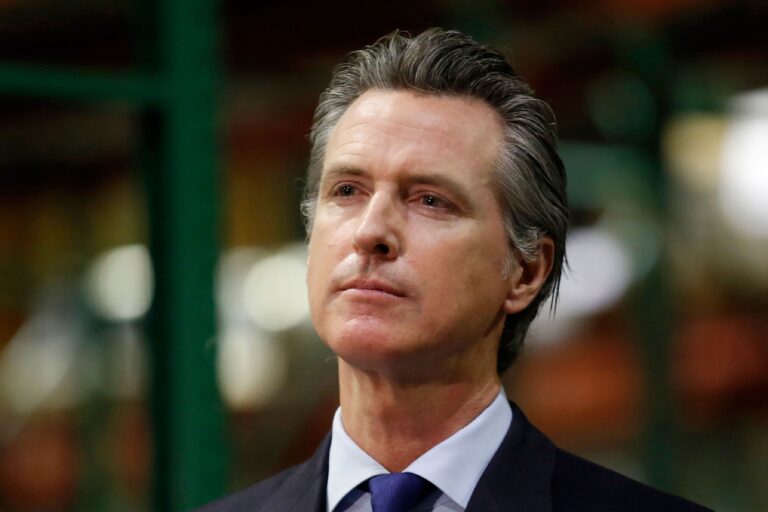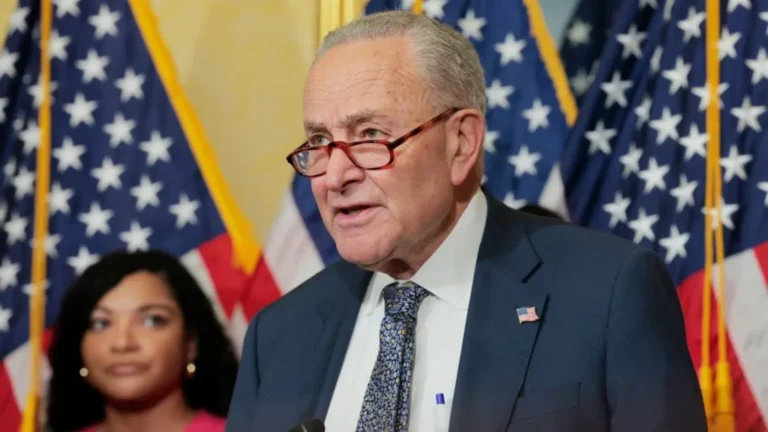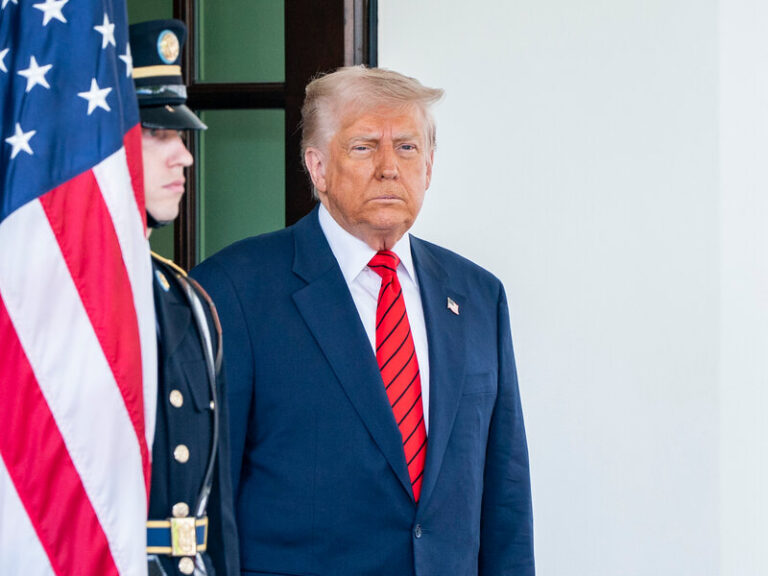Speaker Johnson Slams No Kings Rally, Calls Out Far-Left Agenda
Speaker Mike Johnson (R-LA) made waves with his scathing remarks about the upcoming “No Kings” rally scheduled for October 18 in Washington, D.C. The rally, which has garnered significant attention, is expected to draw a wide range of far-left groups, including Marxists, socialists, Antifa advocates, anarchists, and pro-Hamas factions within the Democratic Party.Johnson’s comments highlighted what he sees as the increasing radicalization of the modern Democratic Party, which he claims is becoming increasingly aligned with extreme left-wing ideologies.
In his speech, Johnson warned about the dangerous alliance between these groups, which he believes will converge on the National Mall to push for a political agenda that undermines traditional American values.
The rally, which is being held in opposition to what organizers view as the unjust actions of the U.S. government, has drawn criticism for its extreme rhetoric and its potential to incite violence.
Johnson’s comments focused not just on the rally itself but on what he perceives as the broader shift within the Democratic Party toward more radical positions.
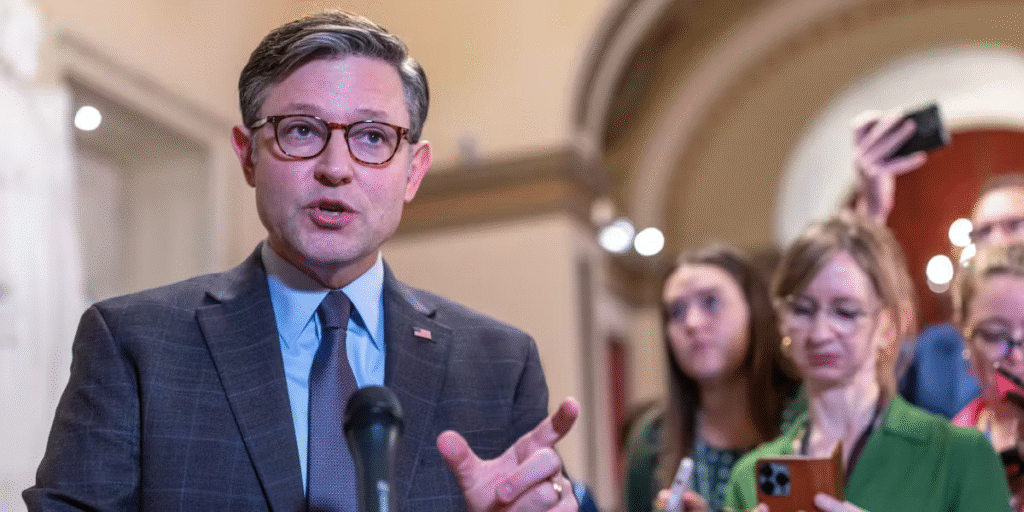
Johnson’s remarks about the No Kings rally are reflective of the broader divide in American politics, particularly regarding the increasing influence of far-left ideologies within the Democratic Party.
Over the past few years, there has been a noticeable shift in the party, with more extreme voices gaining prominence. This shift has created a rift between traditional Democrats and those who align with progressive or far-left ideologies, many of whom are pushing for policies that challenge the status quo of American governance. For Johnson, the No Kings rally represents a culmination of this radicalization. The event, which he argues will bring together a coalition of groups with varying extremist agendas, embodies what he views as the growing threat posed by the far-left in American politics.
He pointed to the participation of pro-Hamas groups as particularly troubling, especially in light of recent tensions in the Middle East and the U.S.’s stance on Israel.
While the rally’s organizers have insisted that the event is peaceful and aimed at expressing political discontent, Johnson and others on the right see it as a dangerous demonstration of extremist influence.
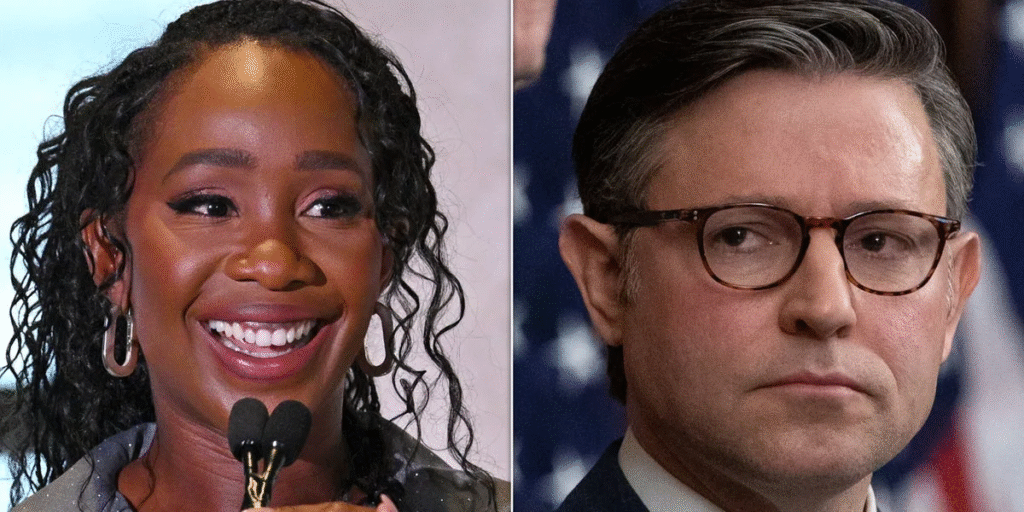
His comments serve as a reminder of how divided the nation has become over issues like immigration, foreign policy, and law enforcement. Johnson’s description of the rally as a gathering of “Marxists, socialists, Antifa advocates, anarchists, and the pro-Hamas wing” is an attempt to tie the far-left factions within the Democratic Party to groups that he sees as undermining American values.
The involvement of Antifa and pro-Hamas groups in the rally is particularly controversial. Antifa, a loosely organized group of far-left militants, has long been associated with violence and protests that aim to disrupt the status quo.
While Antifa has been denounced by many on both sides of the political spectrum for its use of violence in the name of activism, its influence in far-left circles remains significant.
Johnson’s claim that the group is an integral part of the rally reflects the growing fear among conservatives that the U.S. is witnessing the rise of a radical political movement that seeks to dismantle traditional institutions and challenge the rule of law.
The pro-Hamas presence at the rally is also highly contentious. The group, which has been designated as a terrorist organization by the U.S. and several other countries, has long been associated with violence and anti-Western sentiments.
Its inclusion in the rally has raised alarm among many Americans, who see it as an attempt to legitimize extremism in the name of political activism. Johnson’s remarks reflect the deep concern among conservatives about the growing influence of groups that support or sympathize with organizations like Hamas, which openly calls for the destruction of Israel and the dismantling of Western democratic institutions.

For Johnson and other Republicans, the rally is a reflection of the broader ideological shift within the Democratic Party. They argue that the party has been overtaken by radical elements that are more focused on promoting far-left ideologies than on addressing the concerns of everyday Americans.
In Johnson’s view, the Democratic Party’s increasing alignment with these groups poses a direct threat to the values of law and order, free speech, and individual liberty.
Johnson’s comments also underscore the growing divide within the Democratic Party. While traditional Democrats like President Joe Biden and House Minority Leader Hakeem Jeffries continue to advocate for more moderate positions on issues like healthcare, immigration, and foreign policy, the rise of figures like Alexandria Ocasio-Cortez and Ilhan Omar has brought more radical ideas to the forefront.
These progressives, who have gained a significant following among younger voters, have pushed the party to adopt more left-wing policies on issues like climate change, racial justice, and economic inequality.
The No Kings rally is just one example of how the far-left has become more vocal and visible within the Democratic Party. Many of the activists involved in the rally are aligned with the progressive wing of the party, which has become more outspoken in its opposition to the establishment, including both Republicans and moderate Democrats.
This shift has left some traditional Democrats feeling increasingly marginalized and frustrated by the party’s direction. For them, the rally represents a growing influence of radical voices that are undermining the party’s ability to appeal to a broader electorate.
The No Kings rally is not just a reflection of the divide within the Democratic Party; it is also a symbol of the broader political divide in the U.S. The rally, with its far-left agenda and involvement of controversial groups, highlights the increasing polarization of American politics.
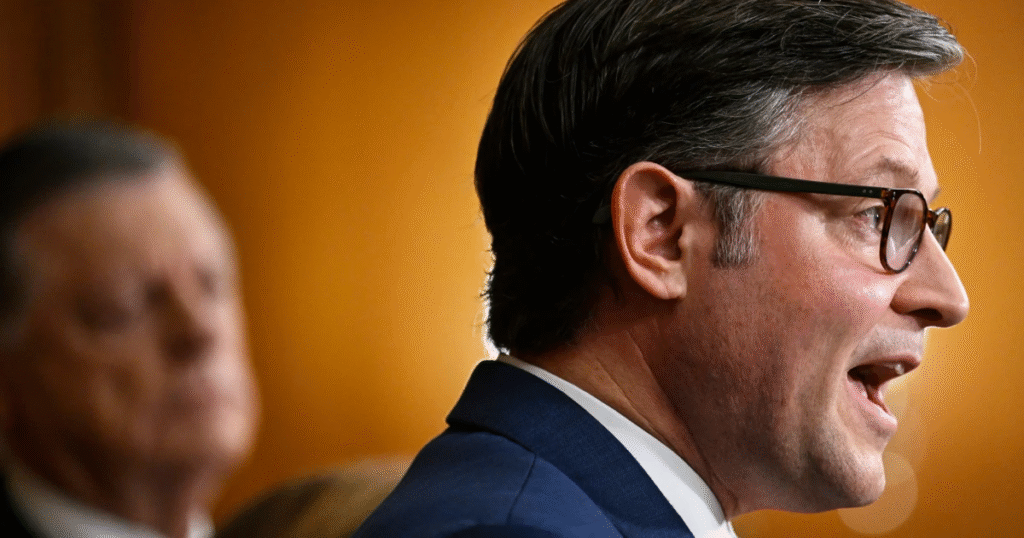
On one hand, you have the progressive wing pushing for radical change, while on the other, you have conservatives who view these movements as a threat to the country’s core values.
The rally is likely to have significant political ramifications, particularly as the 2026 election approaches. For Republicans like Johnson, the rally and its associated groups serve as a rallying cry against what they see as the growing influence of radical elements within the Democratic Party.Johnson’s comments are an attempt to draw a clear line between the more moderate factions of the Democratic Party and the increasingly vocal far-left, with the hope of galvanizing conservative voters who are concerned about the direction of the country.
On the other hand, the rally also provides a platform for progressives to express their dissatisfaction with the political establishment and demand more drastic changes to the status quo.
The presence of groups like Antifa and pro-Hamas activists, while controversial, may energize the far-left base and rally them around a common cause.
As the No Kings rally approaches, the divide between the far-left and more moderate factions of the Democratic Party continues to deepen. Johnson’s comments are just one example of how the political landscape is being shaped by the rise of radical activism and the increasing polarization of U.S. politics.
For conservatives, the rally represents the dangerous influence of groups that seek to undermine the rule of law and promote violent, anti-American ideologies. For progressives, it is a chance to push back against the political establishment and demand more radical change.
As the 2026 election approaches, it is clear that the ideological divide in the U.S. will continue to widen, with both sides gearing up for a bitter battle over the future of the country.
The No Kings rally is just the latest chapter in this ongoing struggle, and its outcome will have far-reaching consequences for the future of American politics.
